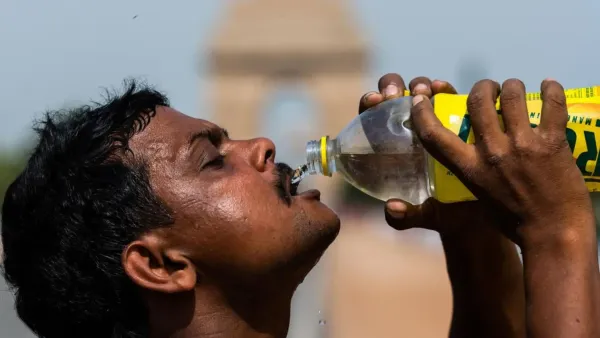
With climate change driving up temperatures across the country, prolonged periods of extreme heat are becoming more common. According to meteorological data, several regions in India are expected to cross 45°C this summer. Prolonged exposure to such heat can lead to dehydration, heat exhaustion, and in severe cases, heatstroke a potentially fatal condition.
Encourage frequent water intake throughout the day. Include natural fluids like coconut water and homemade electrolyte drinks. Avoid caffeinated, sugary, and carbonated beverages which can increase dehydration.
Wear loose-fitting, lightweight cotton clothes in light colors. These help the body stay cool and prevent rashes caused by excessive sweating.
Limit outdoor activities between 11 a.m. and 4 p.m., when the sun is at its harshest. Schedule errands or playtime for early mornings or late evenings.
Use curtains, blinds, or reflective panels to block direct sunlight. Turn on fans or air conditioners when needed. Frequent sponging with cool water or lukewarm baths can help regulate body temperature.
Temperatures inside closed vehicles can become deadly within minutes, even with cracked windows. Never leave children, elderly individuals, or pets unattended.
Look out for signs like dry skin, dizziness, fatigue, nausea, or excessive thirst. Immediate cooling and hydration are critical to prevent heat- emergencies.
Sunscreen: Use a broad-spectrum sunscreen with SPF 30 or higher before stepping out.
Seek Shade: Stay under cover during peak UV hours (11 a.m. to 3 p.m.).
Cover Up: Wear long-sleeved shirts, hats, and sunglasses for added protection.
Carry a small ice pack or cooling cloth to place on your neck.
Use portable misting fans or evaporative coolers, especially in humid regions.
Take regular breaks in shaded or air-conditioned spaces.
Swimming or quick cool showers can also help lower body temperature.
Check on elderly family members and neighbors regularly. Offer water and fresh fruits like watermelon, cucumber, and oranges even if they don’t feel thirsty. For young children, ensure constant hydration and avoid any unnecessary sun exposure.
Children under 5 and seniors above 65 are particularly at risk during heatwaves. Young children have underdeveloped temperature regulation systems and can become dehydrated quickly. Seniors often have underlying health conditions and a diminished ability to sense or respond to rising temperatures, making them more susceptible to heat stress.
Are You Ready To Beat The Heat? Check Out These Summer Drinks To Keep You Cool And Hydrated